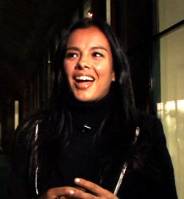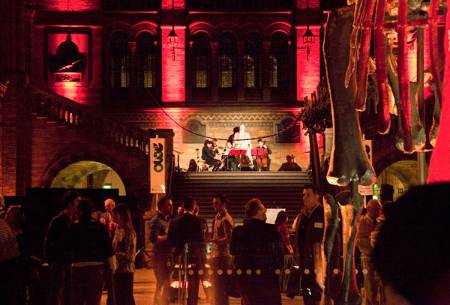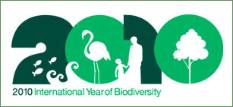250 guests enjoyed the evening atmosphere in the Central Hall at the launch of the UK's International Year of Biodiversity
The International Year of Biodiversity starts officially in 2010, but here at the Museum we celebrated the launch of the UK's Year of Biodiversity on Wednesday evening, 25 November.
We also launched our great new website for IYB-UK (as it's known to those working on it) which will bring together what you need to know about what's going on in the UK.
The Museum is coordinating all the IYB organisations and groups across England, Scotland, Wales and Northern Ireland who are joining the biodiversity activities from now through next year. It's going to be a busy but inspiring time.
If you're new to the concept of 'biodiversity', have a look at our news article about the event, featuring a video interview with some of the speakers including Liz Bonnin (pictured here) who presented the BBC science show Bang Goes The Theory. Biodiversity is a word you'll hear lots about in the coming months.
speakers including Liz Bonnin (pictured here) who presented the BBC science show Bang Goes The Theory. Biodiversity is a word you'll hear lots about in the coming months.
When the United Nations declared 2010 the International Year of Biodiversity, they asked the world to celebrate the rich variety of life - biodiversity - all through next year. The sad fact is we may be losing species 1,000 times faster than the natural rate because of human activities. So we need to make 2010 count. That's why we've started early.
Marie Clements, our communications officer, was at the event and told me about some of the things that are being planned for the future:
'There will be exhibitions, talks, artworks, citizen science experiments and festivals. People of all ages can get involved. They can join surveys, including dormice, farmyard birds, butterflies, hedgehogs and water. And fun activities like bat walks, bird-watching, honey and apple tasting, orchard visits and tree planting.'
Sounds like a 'biodiversity' of things to mark up in your calendar ahead! To guide you through, use our local IYB events search on our IYB-UK website. (Check back regularly as it is a work in progress.)
From farmers to charities, wildlife rangers to councils, schools and colleges to zoos, museums and botanic gardens, the UK has one of the strongest programmes in the world to celebrate IYB2010.
Celebrate the biodiversity of life we have all around us
While we gear up our local and national celebrations, there will be big decisions and moves to be made on a global scale too. One of the key speakers at last night's launch was Ahmed Djoghlaf from the Convention on Biological Diversity (CBD), who heads the global campaign. He highlighted the pressing issue of biodiversity loss, describing how, ‘Climate change is emerging as one of the most significant drivers of biodiversity loss.'
It seems fitting that on the same night as our launch, President Obama announced he would attend the crucial Copenhagen Climate Summit which kicks off on 7 December. Some are pinning their hopes on the decisions made at this conference, others are less optimistic. See my previous blog post on the warnings from Pavan Sukhdev at our Annual Science Lecture about the world's disappearing coral reefs.
To explore the wider picture, visit our biodiversity web pages and the 2010 International Year of the Biodiversity website.





